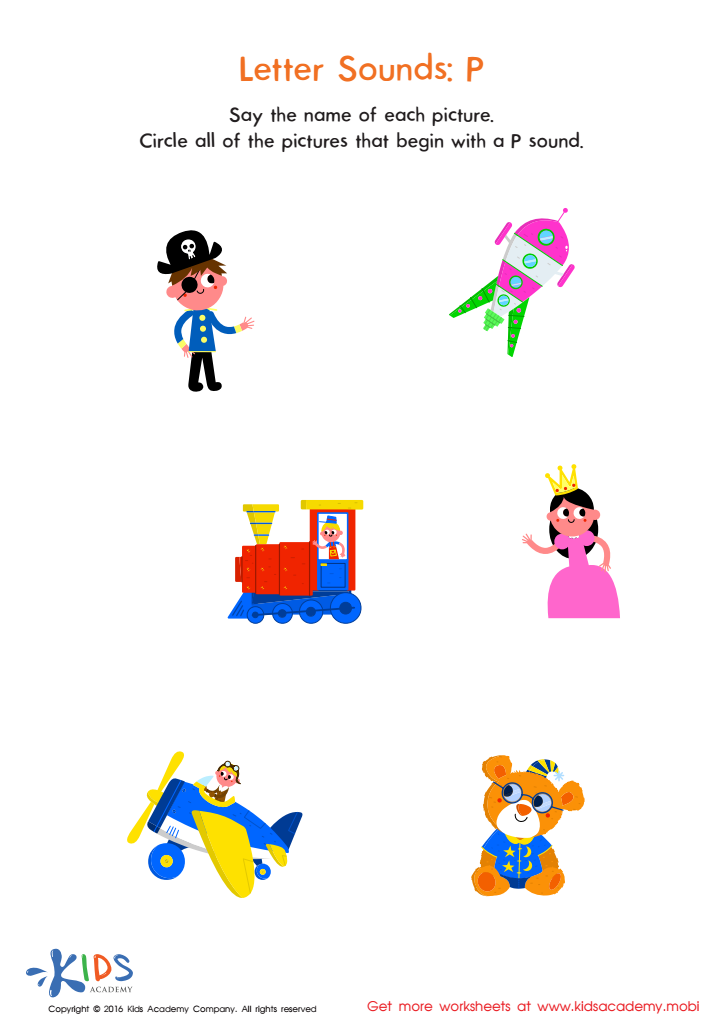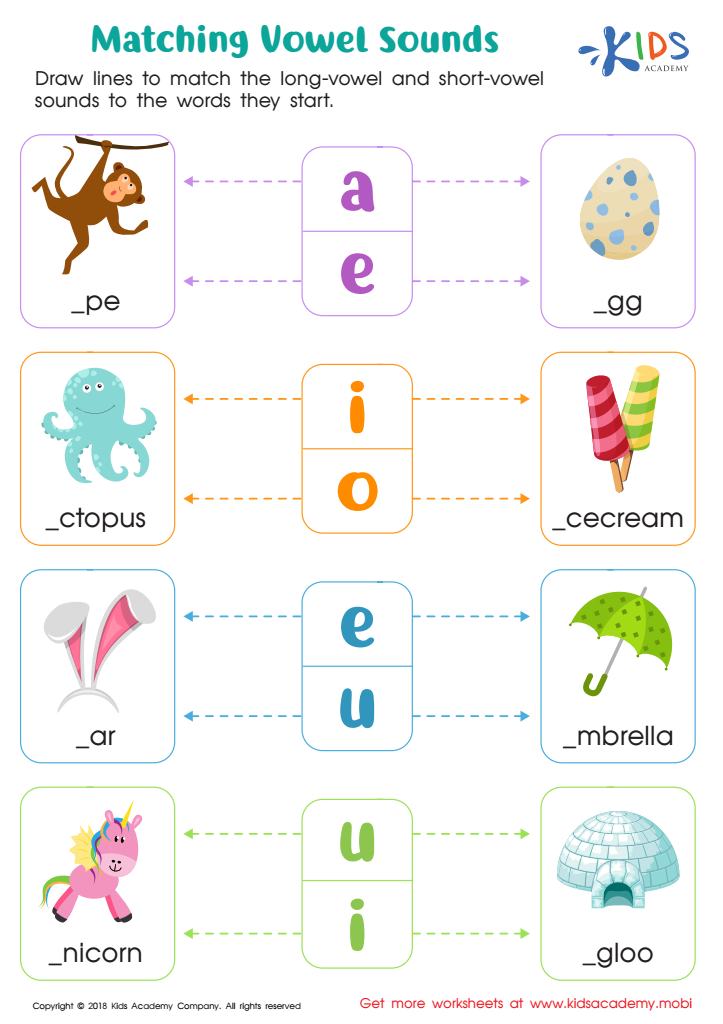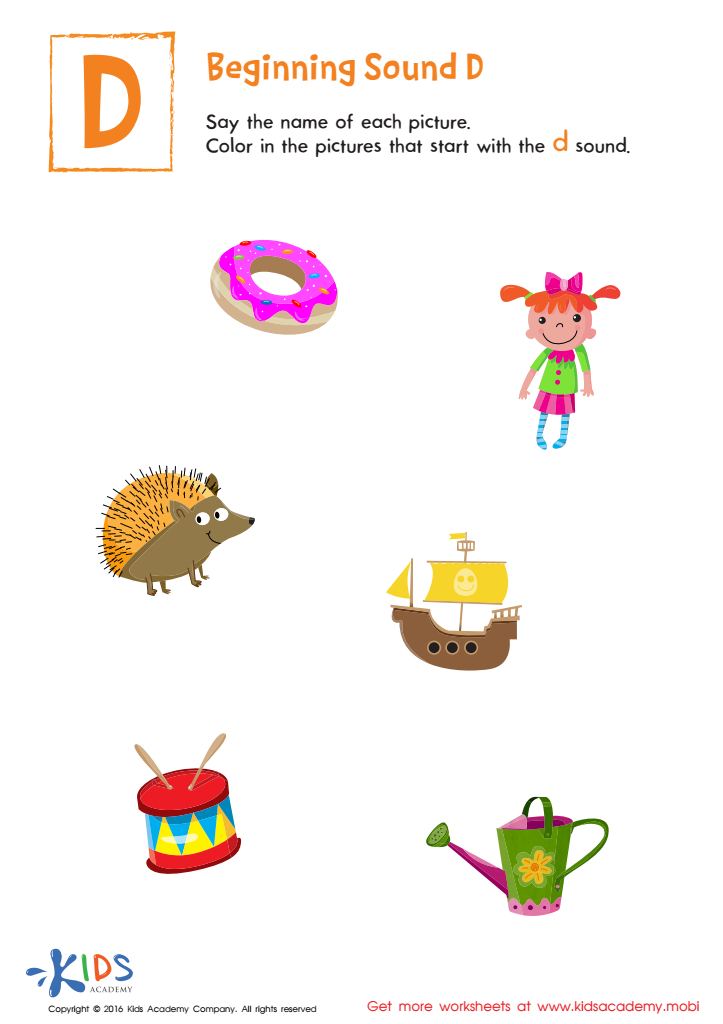Phonics development Normal Phonics Worksheets for Ages 4-9
3 filtered results
-
From - To
Unlock your child's reading potential with our Phonics Development Normal Phonics Worksheets for Ages 4-9. Our expertly designed worksheets focus on building fundamental phonics skills, including letter recognition, sound correspondence, and word formation. With engaging activities tailored to developmental stages, every worksheet ensures young learners grasp essential concepts seamlessly. Perfect for use at home or in the classroom, these resources enhance phonemic awareness, boost reading fluency, and foster a lifelong love of learning. Start your child's phonics journey today and watch them thrive! Ideal for children aged 4 to 9, these worksheets are a pathway to literacy success.


Letter P Sound Worksheet


Matching Vowel Sounds Worksheet


Beginning Sound D Worksheet
Phonics development is critical for children aged 4-9 because it lays the groundwork for proficient reading and overall literacy. Phonics involves the relationship between sounds (phonemes) and their corresponding letters or letter groups (graphemes). Mastering phonics helps children decode new words, which is a fundamental step in becoming a fluent reader.
Strong phonics skills enable children to improve their word recognition, spelling, and pronunciation. These skills foster confidence and a sense of achievement, motivating children to engage more with reading. When children struggle with phonics, they may face challenges in comprehending texts, which can hinder academic progress, not only in language arts but across all subjects, as reading is integral to learning.
Research indicates that poor reading skills early on can have long-term educational and social implications. Conversely, a solid foundation in phonics can accelerate vocabulary development, enhance comprehension, and cultivate a lifelong love for reading. Parents and teachers, therefore, should prioritize phonics from an early age to ensure children develop effective reading strategies. They can do this through structured phonics programs, regular practice, and by providing a print-rich environment that encourages linguistic curiosity and learning. Prioritizing phonics is an investment in a child’s academic future and personal development.
 Assign to My Students
Assign to My Students



















